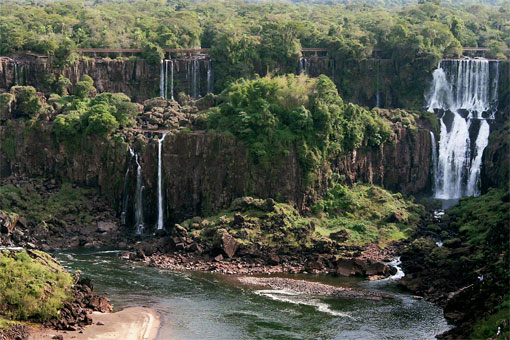Ever since President John F. Kennedy launched the Alliance for Progress in 1961, every new U.S. administration has pledged to dedicate itself to our common hemispheric agenda. Too often, our efforts have fallen short.
Today, a truly galvanizing challenge—the threat of catastrophic climate change—offers the United States a chance to break that pattern and reengage with Latin America. Just as climate change presents the U.S. and Latin America with a common threat, the need to develop secure, sustainable sources of energy represents a shared opportunity.
Today, the global climate change agenda is rightly focused on make-or-break talks in Copenhagen this December. The road from Copenhagen, however, runs through Latin America—where the next round of negotiations will most likely be held in December 2010 in Mexico. The U.S. should work with our partners to put Latin America on track to become an example of what climate diplomacy can accomplish.
The challenge we face is enormous.
Since 1750, atmospheric carbon dioxide levels are up 38 percent, from 280 to 385 parts carbon dioxide for every million particles in the atmosphere. Scientists have drawn a red line at 450 parts per million (ppm)—which represents a warming of two degrees Celsius—a target that the G8 leaders embraced this year at their meeting in L’Aquila, Italy. Anything above that results in an unacceptable risk of catastrophic climate change. But unless we take dramatic action now, we are actually headed to 1,000 ppm by century’s end.
Latin America, along with the rest the world, must embrace clean energy solutions such as solar and wind electricity and biofuels to move beyond fossil fuels and create a truly sustainable form of development.
However, the region has an additional opportunity to contribute to the climate equation by conserving its forests and jungles—which play a vital role in stabilizing our climate…



